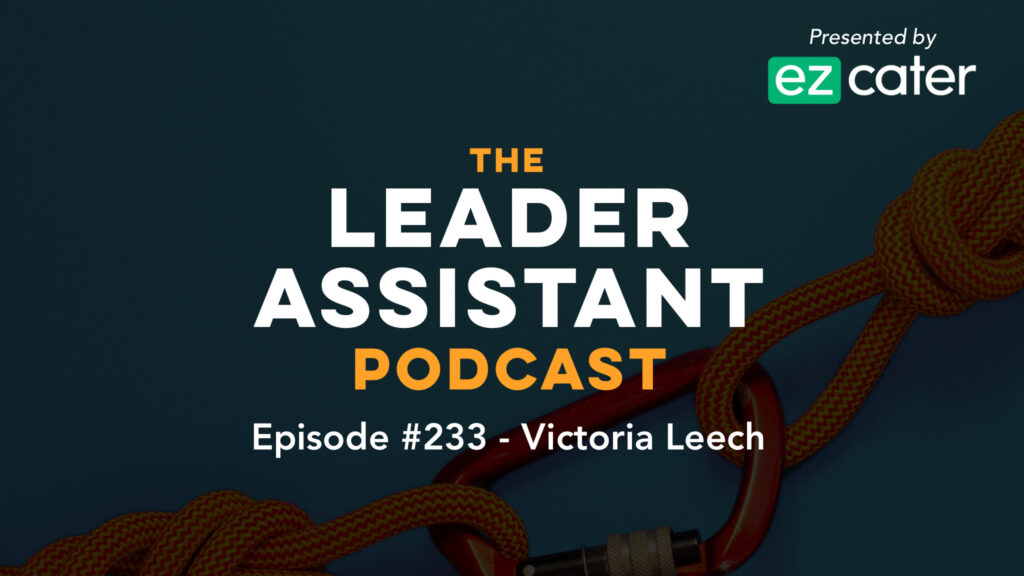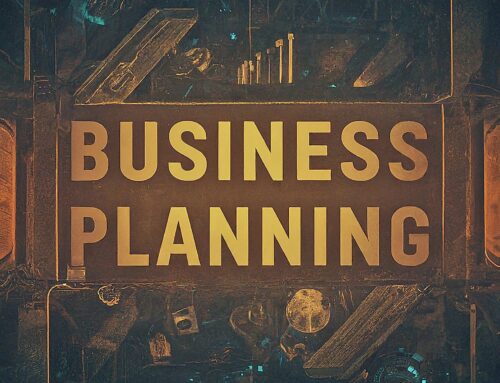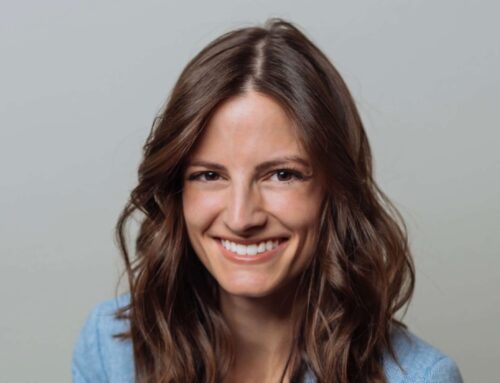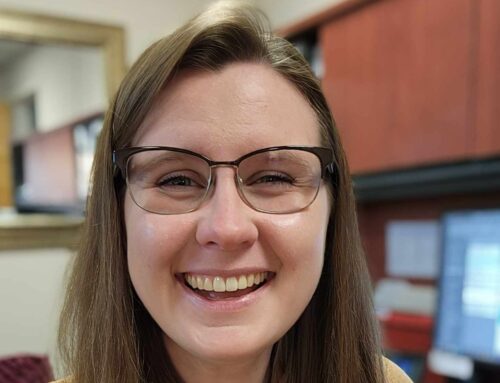Victoria Leech is the Chief of Staff at Phoenix Hydrogen where she spends her time leading strategic initiatives in the renewable energy sector. Victoria also has career experience in the tech industry.
In this episode of The Leader Assistant Podcast with Jeremy Burrows, Victoria talks about meeting facilitation, dealing with stress and burnout, and tools and frameworks of a successful executive assistant.
LEADERSHIP QUOTE
When I dare to be powerful, to use my strength in the service of my vision, then it becomes less and less important whether I am afraid.
– Audre Lorde
CONNECT WITH VICTORIA
- Victoria on LinkedIn
- victorialeech.com
- joindonna.io (A training program designed to help entry-to-mid-level Executive Assistants at mid-sized companies up-level their skills and advance their careers.)
- Victoria’s Email -> victoria@phoenixhydrogen.com
ABOUT VICTORIA
Victoria Leech is the Chief of Staff at Phoenix Hydrogen, a Hydrogen Infrastructure company. She has spent the majority of her career in the tech space and now spends her time leading strategic initiatives in the renewable energy sector.
She loves to coach others and takes a few select clients yearly for one-on-one career coaching. She is a realistic optimist at heart and known tree-hugger.
–––
THE LEADER ASSISTANT PODCAST IS PRESENTED BY EZCATER
ezCater is the nation’s most trusted provider of corporate food solutions — the best way for companies to order food for daily employee lunches, meetings, and events of any size or budget. ezCater’s simple-to-use platform provides a network of over 100,000 restaurants nationwide, business-grade reliability, food spend management tools, and 24/7 support from their highly trained customer service team.
To explore corporate food solutions or place a catering order, visit ezcater.com.
–––
THE LEADER ASSISTANT PREMIUM MEMBERSHIP
To learn more about how you can join growth-minded Leader Assistants, check out our Leader Assistant Premium Membership for ongoing training, coaching, and community.
THE LEADER ASSISTANT BOOK
Download the first 3 chapters of The Leader Assistant: Four Pillars of Game-Changing Assistant for FREE here or buy it on Amazon and listen to the audiobook on Audible. Also, check out the companion study guide, The Leader Assistant Workbook, to dig deeper.
LEADER ASSISTANT LIVE EVENTS
Check out our constantly updated schedule of events for admins and assistants at LeaderAssistantLive.com.
JOIN THE FREE COMMUNITY
Join the Leader Assistant Global Community for bonus content, job opportunities, and to network with other assistants who are committed to becoming leaders!
SUBSCRIBE
Subscribe to The Leader Assistant Podcast so you don’t miss new episodes!
You can find the show on Apple Podcasts, Spotify, Google Podcasts, Pandora, and Stitcher.
Join my email list here if you want to get an email when a new episode goes live.
LEAVE A REVIEW
If you’re enjoying the podcast, please take 2 minutes to rate and review the show on Apple Podcasts here. Each review helps me stay motivated to keep the show going!
—
EPISODE TRANSCRIPT
Victoria Leech 0:00
My name is Victoria Leech. I’m the chief of staff at Phoenix hydrogen. We’re a hydrogen infrastructure company. Today’s leadership quote is by Audrey Lord. When I dare to be powerful to use my strength in the service of my vision, then it becomes less and less important, whether I’m afraid. I love this quote, because for me every time I feel really afraid about a big project, or maybe a shift or change in my career, it usually means I’m making the right decision. And so far, that’s panned out to be true. It’s a good reminder to stretch and grow and follow your fear instead of retreat from it.
Podcast Intro 0:50
The Leader Assistant Podcast exists to encourage and challenge assistants to become confident game changing leader assistants
Jeremy Burrows 1:05
are you tasked with ordering food for your office? Let me tell you about ezCater with over 100,000 restaurants to choose from nationwide and a 24/7 customer support. EzCater helps assistants like you and me succeed at work and makes our lives easier. Visit ezcater.com/leaderassistant to find out more. Hey friends, welcome to The Leader Assistant Podcast. It’s your host Jeremy Burrows and it’s episode 233 You can check out the show notes at leaderassistant.com/233 That’s leaderassistant.com/233. Today I’m speaking with Victoria Leech. Victoria is the chief of staff at Phoenix hydrogen. Victoria. First of all, welcome to the show. Second of all, what part of the world are you in?
Victoria Leech 2:00
Thank you Jeremy. I’m based out of San Francisco but today I am at my parents home in Reno. We spent all morning paddleboarding on the lake. So it’s been a very good day so far. West Coast.
Jeremy Burrows 2:14
Love it. Love it. I’ve spent I’ve had a couple trips to Reno, Lake Tahoe and it’s beautiful, beautiful country over there. So it’s awesome. Well tell us a little bit about so you know you’re on the lake. Do you have pets, kids? Maybe your favorite hobby?
Victoria Leech 2:34
Yeah. Well, I thoroughly enjoy paddleboarding. I don’t get out here to do it enough. I have two young kids. My oldest is five and a half. My youngest is two and a half. They keep me very busy with their own wild schedules. It’s like having a couple of additional execs that you have to take care of and manage. And we also have a wonderful golden retriever. His name’s Winston, he’s three, I guess, almost three and a half now. And we we all we all play and garden and being based in San Francisco, there’s a big park culture there. So we spend a ton of time at the playgrounds. My kids run around and chase bubbles. And usually I sit back and watch them explore. It’s a lot of joy.
Jeremy Burrows 3:30
That’s great. Yeah, it sounds like you’ve got your hands full with those young kids. And Doug, and but sounds like you have a lot of fun too. So that’s awesome. All right, well, let’s jump in then to your career and talk about maybe early in your career, what your experience has been as an executive assistant, but then also you’re currently at chief of staff. So tell us a little bit about how you ended up in the executive support world? And then maybe why the transition from EA to chief of staff and what you like about chief of staff and maybe the differences between EA and cheeps there?
Victoria Leech 4:14
That’s a great question. So my first kind of administrative role was actually back in 2013. I was working at a company that serviced Airbnb, and this was back when Airbnb was kind of just becoming a huge thing. It was becoming a lot more popular. And so it was my job to direct house cleaning to the correct houses when there weren’t going to be people there and sure they have their towels and their shampoos, all that stuff. And that was my first administrative role. It wasn’t in support of one executives. It was just in support of the whole company. I was employee number three. And that was a great opportunity to really get my feet wet. Then my first two Rue executive assistant role was at a company called Hack Reactor that was back in summer of 2015. That was a really unique experience Hack Reactor was a coding boot camp. So it’s really the way I got into tech. And they did something very funny there. It started out were the entire EA team, everybody, each individual supported one executive, which I think is pretty classic. And then they decided that instead, the team of EAs would support the team of execs. And it became a lot. It was really a fun, dynamic. Everybody worked really hard together to tackle different challenges, we all had to be able to step in for one another, regardless of what was going on. But I think what ended up happening is you miss that opportunity to develop a really close tie with your executive to excel in just one area of the business. And from there, I ended up getting promoted to director of communications. And that was a really interesting experience and something I didn’t totally enjoy doing. So I made the switch back to being an EA. I was an executive assistant for this man named Lior, Avi dar shout out to Lior. He and I worked together for over five years, we ran two companies together, he taught me everything I know really about how to run a an efficient, successful business, I owe him I owe him a lot. We spent a ton of time together, I got to see every single part of the business. And it really set me up to be successful in my chief of staff role now. Because I understand the game of business a lot better. I’m more teed up to work closely with other executives as my peers, which is an interesting dynamic. And I think a shift. One of the things I love about being a chief of staff is that I have a lot of really high level strategic projects that I own completely. So instead of playing a support role to all these important strategic projects, I actually own them, and it’s my career on the line, it’s a lot more pressure, but I enjoy it. It kind of has forced me to grow and evolve my my own skill set. So that’s kind of my career in a nutshell.
Jeremy Burrows 7:44
This. So if somebody asks you, what maybe the top differences from, you know, the assistant role, executive assistant, specifically to chief of staff? How would you answer that question at a coffee shop? Or in the elevator? They’re like, hey, what’s the difference between an EA and a chief of staff?
Victoria Leech 8:08
Yeah. I think as an executive assistant, your role is primarily as a like thought partner with your executive, it’s your job to ensure their success. So when I was an EA to the CEO, he had one core metric, or two or three core metrics, right? It was his job to make sure that we hit our OKRs it was his job to make sure or OKRs, or KPIs, you know, our goals. It was his job to make sure we didn’t run out of money, you know, things like that, that we kept our investors happy, and we kept them looped in. And so it was my job to support him in that it was still his work to do. It’s one of the most rewarding jobs being an executive assistant because you get to help somebody else achieve their goals. And I think that’s really thrilling. It’s one of the things I love about being an executive assistant. And being a chief of staff, you lose that side. I don’t do any calendar management, I don’t make sure my you know, Team eats lunch there that’s on them to do I play zero support. Instead, it’s my job to own specific OKRs that are at a kind of strategic level that don’t fit nicely into one of the other organization like other parts of the organization, or for example, when you know, when we don’t have a marketing leader in place, it’s my job to step in and fill in those gaps. It’s my job to hold them accountable to certain goals as they affect my own, but I’m now just one of the other leaders at the table. In fact, I could really use me I wouldn’t be great at something else. Managing my calendar Bruins.
Jeremy Burrows 10:03
Cool. So basically, the EA supports the specific executives OKRs or goals. And then chief of staff may essentially be a catch all for or wildcard or goals that maybe have blurred lines or yeah falling directly to a certain executive.
Victoria Leech 10:33
Exactly. So it’s oftentimes, like cross functional projects that many teams will roll into. But no clear person actually owns or could like pull their own lever to drive progress.
Jeremy Burrows 10:50
Got it. Cool. So, you facility in probably project manager a lot, I’m assuming, right?
Victoria Leech 11:01
Yeah, I do a ton of meeting facilitation a ton of project management.
Jeremy Burrows 11:05
Yeah. So what’s maybe a few tips on facilitating meetings. I know when I was a project manager, the one year of my career that I shifted over to project management, I kind of felt like a babysitter sometimes like, I’m like, Alright, guys, like you’re supposed to go do this now. Okay. Have you done that yet? Have you done that yet? And, you know, just like, so anyway, sometimes that you can feel that way in meetings as well, facilitating meetings, but what are some good tips to drive meetings forward and facilitate with all these unique personalities?
Victoria Leech 11:41
Yeah, I think the biggest thing that we all forget about doing when we are responsible for facilitating a meeting, hosting a meeting is all the preparation beforehand. We all have standing meetings on our calendars. Some of them don’t require a ton of prep, because they’re they have very defined goals for those specific meetings, I think, like OKR reviews or KPI meetings, anytime you get your leaders together to, you know, hash out, you know how we’re going to move the needle on, you know, some goal, those don’t necessarily need a ton of that kind of preparation. But when you are leading like a strategic project, there’s a ton of preparation that needs to go into a meeting before you even have one. And I often tell people that you should really check in and see do I actually need a meeting before putting something on the calendar? And that really saves everybody’s time to you know, like, is this an email like, ask yourself, when you’re like, I’m bringing these people together? These people have something that I need. Right? That’s usually why you’re bringing people together, they have something I need, they have an outlook, that they have context on this topic, or what have you. Who is attending? Why is every single person attending, what are they bringing to that meeting? What is the clear goal of that meeting the expected outcome. And I think once you do that, it allows you to be really efficient. With everybody’s time, everyone has a very clear understanding. I think there’s some I’d say there’s about six goals or outcomes that you could have for a meeting. You’re either bringing people together because you need a decision. You’re bringing people together, because you need to have a discussion about something meaty, you need to share context. You need to evaluate something, you need to create shared understanding, I think all hands meetings or townhall meetings are a great example of like creating shared understanding for your company, you need to discuss goals, or you need to bring people together to curate ideas. Like that’s essentially all you do in these meetings. And if you’re not doing one of those things, you’re probably just telling people information, which should be, you know, like an email or a Slack message or the team’s chat, whatever it is that you’re using. The other thing that I think is really important when it comes to facilitating meetings is who is attending should not be an afterthought. I like to use the Desi framework. It’s a project management framework that I applied to meetings as well. And every single meeting there’s somebody who’s driving it, so that’s usually your facilitator. i There’s an approver there’s somebody there to approve the decision or to approve next steps. That’s usually your executive. There’s all the contributors or the stakeholders, those could be the stakeholders could be from other teams that your project might be impacting. The contributors are the people actually doing the work. And then occasionally, there’s people that are there just to be informed. That’s The, the ACI, Desi framework. And I think when you start applying that to your meetings, too, all of a sudden people know exactly what they’re there for. And as an executive assistant, if you have told your executive exactly why they need to be in a meeting, they’re going to show up in their best light. And really, that’s, that’s all of our goal, right is to make our executives look good. So are you having your executive attend this meeting, because they’re the decision maker, they need to go in and get a decision. Okay, they need to know what decision they’re making. And they need to know that these people are bringing the correct context for them, or they just coming in because they have the context to help the CEO make a decision. Like getting that clarification early on, I think, creates a lot more efficiency. Let’s see what else is really important for meeting facilitation. I think the big one that we probably all talk about is agenda setting. And that kind of comes back to having a very clear goal, making sure all the attendees understand their roles, and then ensuring all the context or references are done. That’s kind of that third step of like, being a really great meeting facilitator is context and references. So oftentimes, we all come together, because, you know, we need to make a decision on how to move forward on a project. Well, you have to make sure that all the data that the team needs, or the context that everybody needs is there and available before the meeting, so everyone can come in informed, they all have the same set of information to argue their points. You know, that’s especially true when you’re setting goals. I think we like you’re bringing the marketing and sales team together to set the revenue goals for the year. If they don’t all have the exact same information in front of them. It’s like, okay, this is what sales is coming, you know, to the table with this is what marketing is coming to the table with this is how we performed last year, how’s anybody going to actually come and make a informed decision about how to set the goal for next year? Like, if you are having a meeting, and you haven’t hit those three things in your agenda, like you’ve missed a step, you’ve missed a really important step that is going to make it a worthwhile experience for everybody.
Jeremy Burrows 17:34
Yeah. So what about the executive assistant? In in the, you know, what about their tools or, or their frameworks? You know, those are all helpful things for anybody who’s facilitating a meeting, which is, which is great. And I love, love all of the, you know, the acronyms in the in the lists of like, Hey, did you cover these three things that you consider these four things, etc? But what are some specific to executive assistant? And, you know, even more specifically, successful executive assistants? What are some tools and frameworks that you use in your career that you’ve seen? Use? Well, it’s yeah, in the assistant role.
Victoria Leech 18:24
So specific, like tools and frameworks for EAS just generally. Yeah. Let’s see. There’s like probably six specific ones that I could think of, in as it relates to meeting facilitation. And then I think, the other thing that is really valuable. Yeah, let’s start there, actually. So we’ll continue meeting facilitation, we’ll go some tools and frameworks. Okay, so here’s, here’s what you’re going to be doing. In most meetings as an EA, right, you’re going to be the one taking notes, you’re going to be the one sending those notes out, you’re probably the one time tracking or managing time. And I think there’s a few different things that you can be doing. There are like frameworks or tools that you can use. And it really depends on the type of meeting you’re facilitating. But I love to schedule when I’m when I’m setting a meeting. There are set time limits for each agenda topic, right? Setting those and then actually having a visual timer is a great tip for EAS to be using because then you don’t have to like interrupt your CE O ‘s, they’re in the middle of some like some drawn on point you know that they’re trying to make stead it’s like okay, there’s a visual timer everybody’s now involved in tracking time against the actual agenda. If you’re in person, you can use an actual timer in zoom, they have that feature, you can actually pull one up. Sometimes I change out my face for an actual clock. And I’m just like, the actual clock.
Jeremy Burrows 20:17
Like Good cop, bad cop, and you’re the good cop and the clock is the bad cop.
Victoria Leech 20:22
Yes, exactly. It’s like no, I promise I want us to go on and on about this. But actually, we need to move on. I think there’s also like, as far as notetaking goes, oftentimes, I think EAS end up in the note taking role. And that isn’t always the best situation. I think identifying the correct person to take notes is a skill set in and of itself. I take notes in every single meeting I attend, just that I can remember. Because I am notorious for forgetting things, I have to go back and check my notes. But the person responsible for taking notes in a meeting should be somebody who is not facilitating the meeting. It should not be somebody who needs to be actively engaged in the conversation. And that person has to have enough context and understanding about what’s being talked about to to take the notes, sometimes that’s us as EAS, sometimes it’s not sometimes it’s somebody else on the team. And making sure that that’s really clear is super important.
Let’s see here. I think the other thing I would say is like
there’s a lot of different types of facilitation that can occur. So there’s, you might be putting together an assumption map with your team a priority map, you might be doing impact effort mapping, you could be having some kind of democratic discussion, and that’s going to lead to you showing up in a different way. It might be you just sitting in the background, taking things in so you can be a thought partner to your executive later when they’re trying to make a decision. You could be doing some kind of retro, right, where you’re leading people through a Start Stop continue framework. You know, maybe your team needs to have a shared evaluation. So you might be doing a SWOT analysis or a pre mortem or sometimes we call it heart head hand. Sometimes you’re leading teams through a brainstorm, right and you’re doing crazy eights, are you doing mind mapping? You could do a round robin, if you know for a fact that half the people there are more introverted and you need everybody’s voices. So you’re like passing a stick around you know, the talking stick? Something we kindergarteners but it works really great with executives to
Jeremy Burrows 23:07
nurse or like executives or like kindergartens, kindergarteners. No, really,
Victoria Leech 23:12
that’s that’s the takeaway here.
Jeremy Burrows 23:14
It’s gonna be the title. That’s gonna be the title of the episode. Victoria leach on how executives are like kindergarteners.
Victoria Leech 23:22
Yep. When they get cranky when they haven’t had their lunch, you’ve got to reschedule their whole day. Yeah, you’ve got to make sure that everybody gets that time for r&r. They need all the information all the time executives have so many questions,
Jeremy Burrows 23:38
no snacks, you know? Well, what let’s Okay, so these are these are great frameworks, great tools, great tips. And I think these are super helpful to implement in our day to day, whether you’re an EA or chief of staff or an administrative assistant, etc. But I know from my personal experience, and from talking with hundreds of other assistants over the years, and and executives and you know, even just people listening right now and they’re going okay, that’s all fine and dandy, but I’m exhausted. You know, and I’m stressed out and I am I need a break or I can do this but the pace that we’re running at is too fast and too hard and not sustainable and I’m burning out. So how have you dealt with stress and burnout in your career and throughout your career? And how do those listening how can they resist and and manage their stress and burnout?
Victoria Leech 24:54
Yeah, I I love this question. Something I said The top of the call today was that it is your job as an executive assistant to ensure your executive success, right? In order to work really hard, you have to rest hard to. And something I think EAS talk about all the time is how can we ensure that the calendar is efficient and effective. And I think, when I was an example of this is when I was really early on in my career as an EA, I thought it was just my job with the calendar to like, make sure the meetings were on there that they weren’t double booked. And like maybe insured lunch was squeezed in at some point. But then living that myself, you know these back to back meetings, you don’t have a chance for a bio break, you haven’t stretch your legs, you haven’t seen the sun all day, if you start your day too early. It totally burns you out. It’s exhausting. And this was especially true at a point in my career when we were running to, you know, start up side by side, I was completely burnt out. And I was doing so much context switching. So I took a lot of lessons in this. And one of the things I was doing was I was I was monitoring my executives efficiency and his mood. So every morning, I’d say hey, what’s your number today? Like? Where are you at? Anywhere on a scale of one to 10? He’d usually wake up around like an eight or a seven, right? I’m like, okay, great. If I can keep it to eight, eight or seven throughout the day, I know I’ve done a good job. And I got to the point where I understood that he could not do more than four hours of meetings during a day and maintain that high like, high alert, high mood like that effectiveness. Yeah, the energy level. Yeah, the energy level. So we were we were monitoring that. And then I was like, Okay, actually some meetings, he walks away feeling way better than others. And like starting to learn what those tendencies were. And once I understood that, I was able to create a super effective schedule for him. And I was still like running around like a chicken with my head cut off, right? I was like, Okay, we will wind it back. I have to go do the exact same thing for myself now. What can I actually achieve. And so something I started doing is I started sending a weekly recap, email, this email has everything I not everything, let me specify this, this email goes to my executive on Fridays, Friday afternoons, when I’m done with my week. It has the projects that they care the most about that I made progress on. It has the things that I’m planning on doing next week on those specific things that they value. And it has the things that I’m blocked on. I send that on Friday ends. And it was a way of me a way for me to really crisp up and clarify where I’m truly moving the needle, like what, where is the value that I’m creating. Because if I couldn’t write it in that email, it ended up being just busy work for myself, like work that I was creating, it just wasn’t important, or I needed to delegate it. I’m sure we’ve probably heard of the Eisenhower matrix here. That’s a great tool for prioritizing your work and saying like, Okay, some of this stuff I do have to do, like, this is the job, you know, expense reports. But I happen to know that I can timebox it to just 15 minutes, I’m gonna get through time, I’m gonna get through my expense reports in 15 minutes. And if I don’t, then I’m like, not going to get to them this week. And that’s okay. And then I had to really create space for myself on top of that. So the other thing I did is I blocked out my lunch. And I do not take lunch at my computer. And I go outside as often as I can. I’m really grateful for the pandemic in this because I now spend Mondays and Fridays, working by the pool in the sunshine, and I don’t take meetings unless they’re phone calls. And it has been it’s such a like cheat code for life. I can sit I can get all my work done. I can take my calls. But because I’m spending so much more time outside, my energy level throughout the week is just so much higher. I’m way more effective than I’ve ever been.
Jeremy Burrows 29:40
Yeah, that was one of the things that I did when I shifted fully to remote work was just trying to go outside at lunch and even if the weather sucks, then I would go like walk around in circles in my basement. But if the weather was decent, then I’d go walk around in circles in my chair. I’ve weighed and just just for 10 minutes or so and just to get the blood pumping in and burn the calories that I just eaten for lunch, and you know, all that stuff. Oh, totally.
Victoria Leech 30:10
It’s the other thing that I do now, just so consistently is I go to the gym at least three times a week, I find a way to work that in because that’s the way I feel good. But for other people, it could be like walking around your neighborhood, it could be having time with a good book, like, whatever it is that re energizes you, you’ve got to focus on that you have to incorporate it because you cannot show up as your best self. If you don’t take good care of yourself.
Jeremy Burrows 30:45
Yeah. Yeah, well, sir. Well, Victoria, to kind of wrap things up, it’s been a great conversation. I appreciate your insight and sharing a little bit about your journey. You also do some coaching, one on one career coaching, I believe. You coach assistants and Chiefs of Staff, is that right?
Victoria Leech 31:08
That’s right, yeah. And work with a lot of mid level, executive assistants, oftentimes EAS that find themselves in new management positions, or find themselves new to the chief of staff role. And it’s been a total joy for me. In fact, I’m even launching a program more like a six week program for executive assistants so that they can get a lot of these kinds of tools and frameworks, all written down in more of a digestible format over the course of six weeks, rather than paying for ongoing one on one coaching.
Jeremy Burrows 31:45
Wow, that’s great. So what’s the best place for assistants and chief of staff to reach out to you to say hi, or book a book a session?
Victoria Leech 31:56
You feel free to email me you can email me Victoria@Phoenixhydrogen.com Or go check out the new program at joindonna.io
Jeremy Burrows 32:07
Great, and I’ll put those links in the show notes. Leaderassistant.com/233 Leaderassistant.com/233 to check out all of Victoria’s links and learn more about what she’s up to. And yeah, really appreciate your time and it sounds like you have a great situation and great you know tools and frameworks and then I love the the even a simple tactic of no lunch at your computer rule is even an even if people listening that’s all they take away. That’s a good good takeaway. So
Victoria Leech 32:50
check that take that with you. It will change the game. Awesome. Thanks so much Jeremy.
Unknown Speaker 33:07
Please review on Apple podcasts.
Unknown Speaker 33:16
Goburrows.com









